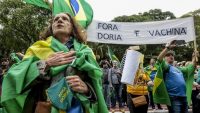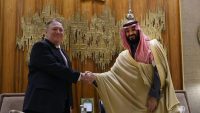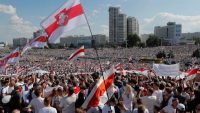
Avoiding a Bloodbath in Ethiopia’s Mekelle
A humanitarian catastrophe may soon unfold in Mekelle, the capital of Ethiopia’s Tigray region. Following the expiry of a 72-hour federal ultimatum demanding the Tigray government either surrender or face attack, Prime Minister Abiy Ahmed announced he had authorised the Ethiopian army to begin an assault on the city. The cost of a clash between two heavily armed forces in a metropolis of about 500,000 inhabitants could be staggering. But it is not too late to avert more civilian deaths, nor to avoid a bloody confrontation that could inflict lasting damage to the country. Following the African Union’s lead, the U.S.,… Seguir leyendo »












